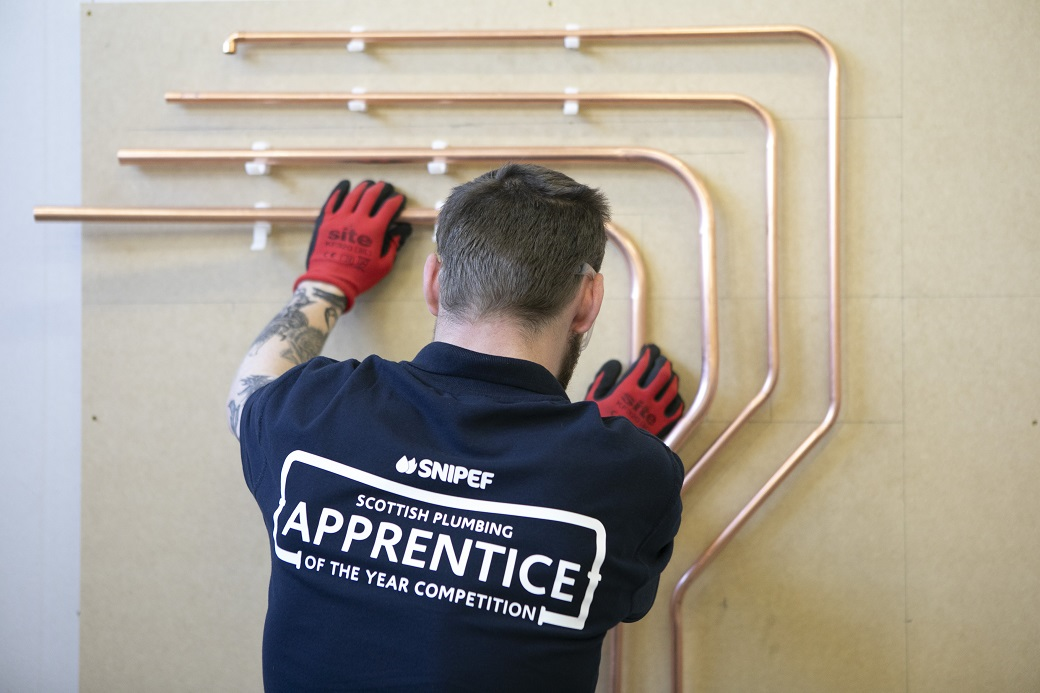Plumbing and heating apprenticeship boosts low carbon learning

In response to the growing demand for greater low-carbon skills, employers and apprentices have taken a leading role in conducting a comprehensive review of Scotland’s Plumbing Heating Apprenticeship programme.
Led by the Scottish and Northern Ireland Plumbing Employers Federation (SNIPEF), BSE Skills, and Skills Development Scotland (SDS), the apprenticeship review has prioritised the needs of employers and apprentices while ensuring it aligns with the evolving sustainability demands of government and consumers.
Throughout this process, extensive industry input has been vital. Engagements such as consultations, workshops, and the establishment of key groups like the Technical Expert Group and Provider Advisory Group have ensured that the evolution of the curriculum is both inclusive and reflective of current and future requirements.
Commenting on the review, Stephanie Lowe, SNIPEF’s deputy chief executive, said, “The review has attracted unparalleled support from across the profession to advance training and development in low-carbon technologies for the next generation of plumbing and heating professionals.
“Guided by the expertise of Skills Development Scotland (SDS) and the Scottish Qualifications Authority (SQA), I am convinced that this collaborative endeavour will improve Scotland’s Plumbing and Heating Apprenticeship going forward and reinforce the profession’s collective commitment to environmental stewardship.”
Fundamental to the review has been the extensive involvement of employers and their apprentices, who have worked to identify and agree on the essential skills and training to meet the profession’s future requirements.
John Doherty, director at John Doherty & Co Ltd, an employer involved in the review process, emphasised the importance of this collaborative approach, stating: “As employers, we bring a unique perspective on what the apprenticeship programme should encompass, driven by our firsthand experience of this ever-evolving profession.
“This review has been instrumental in positioning our collective expertise and viewpoints at the core of the apprenticeship review. It is a definitive example of how collaboration between business and academia can significantly advance apprenticeship programmes, ensuring they meet future employer demands.”
The review also aligns with the Construction Leadership Forum’s Construction Accord, which aspires to develop low-carbon skills within apprenticeships in Scotland’s construction sector. This synergy underscores the plumbing and heating profession’s proactive approach to meeting current standards and leading the sustainable transformation of the entire construction landscape.
Laura Brady, development manager – construction at SDS, added: “The expertise of multiple stakeholders, along with the commitment from SNIPEF, employers and apprentices, is fundamental in ensuring the apprenticeship meets the profession’s future demands and secures its vital role in Scotland’s transition to a low-carbon economy.
“Ultimately, this apprenticeship is designed for the profession, by the profession. Our commitment to being involved with other industry experts reflects our understanding that it is the sector which is best positioned to effectively determine the apprenticeship’s content to meet current and future needs.”
Alan McDonald, BSE Skills project manager, said: “As the standard-setting organisation that bridges the gap between educators and industry, BSE Skills has been delighted to play its part in this review and pull together the necessary paperwork for submission to the Apprenticeship Approvals Group (AAG).
“The detail and depth of thought that have gone into this review reinforce the quality of the apprenticeship and how the industry is leading it to ensure that we’re net zero ready and can make a smooth transition to a renewable future.
Plans are underway for the newly updated apprenticeship framework to be approved by late 2024.























